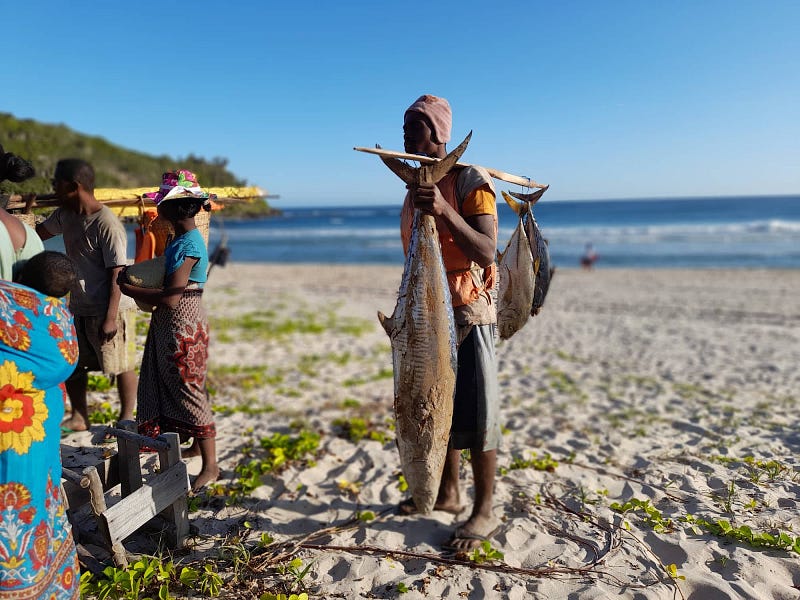Guest Post —Restoration: An interdisciplinary concept in response to local development problems in Southern Madagascar
Safidy Ramarolahy, F4CR Madagascar Local Chapter Leader
In this blog post, guest author Safidy Ramarolahy discusses the restoration and development work underway in communities across Southern Madagascar. The training programs in these communities have fostered widespread commitment to ecosystem restoration, as well as providing resources for leaders to continue developing sustainable practices and solutions for the local environment and community.
6,000 people at 21 sites were sensitized and trained on the concept of climate restoration as part of a four-month mission between April and August 2022. The initiative was carried out by the local chapter of the Foundation For Climate Restoration (F4CR) and the Programa Vonjeo ny Tsy an’Asa — Unemployed Programa Madagascar (PVTA).
The South of Madagascar has been a center of research and experimentation for scientists, while remaining a cemetery of development programs and public policies for successive governments. Over the course of four long-standing Republics, there has been little progress in determining solutions to the interrelated problems of drought and poverty due to lack of political will and governmental stability. Logically, the intervention in the south must be sustainably based in a spirit of restoration in mentality, governance, social, and economic aspects. To bring real development to this specific Malagasy and African situation, climate restoration must be defined as an interdisciplinary concept beyond a simple climatic and environmental aspect. It must integrate epistemo-anthropo-philosophical, socio-economic and governance dimensions while staying a fully-fledged political concept to be transmitted to an entire generation.

The training provided by the local Madagascar chapter of the Foundation for Climate Restoration was aligned with this ideology in order to mobilize beneficiaries, champions, and leaders to bring about a reorganization of local development practices and approaches. The modules provided relate to leadership and political management, initiation to climate restoration, communication, advocacy, and the blue/green economy.
The beneficiaries were mainly young incubators and project leaders, and at the end of each session initiatives were collected to design the actions that will make up the intervention of the F4CR in the South of Madagascar. Initiatives included coastal desalination in Ambovombe to help increase water access, regenerative agriculture on the plain of Ihorombe in order to increase resilience in the face of the territory desertification, agroforestry, the blue economy and fight against unemployment, and a communication and ideological training campaign.
This four-month mission resulted in the mobilization of 6,000 beneficiaries and 50 trainers in 21 localities throughout the south of Madagascar. The Malagasy government continues to support the initiative through the Ministry of Technical Education and Vocational Training, civil society and grassroots communities. At this rate, the objective set for the training of 1,000,000 individuals in four years is achievable, resulting in the attainment of objectives 1, 2, 13 and 14 of the SDGs and a marked improvement of 0.6 points on the country’s HDI (human development index).